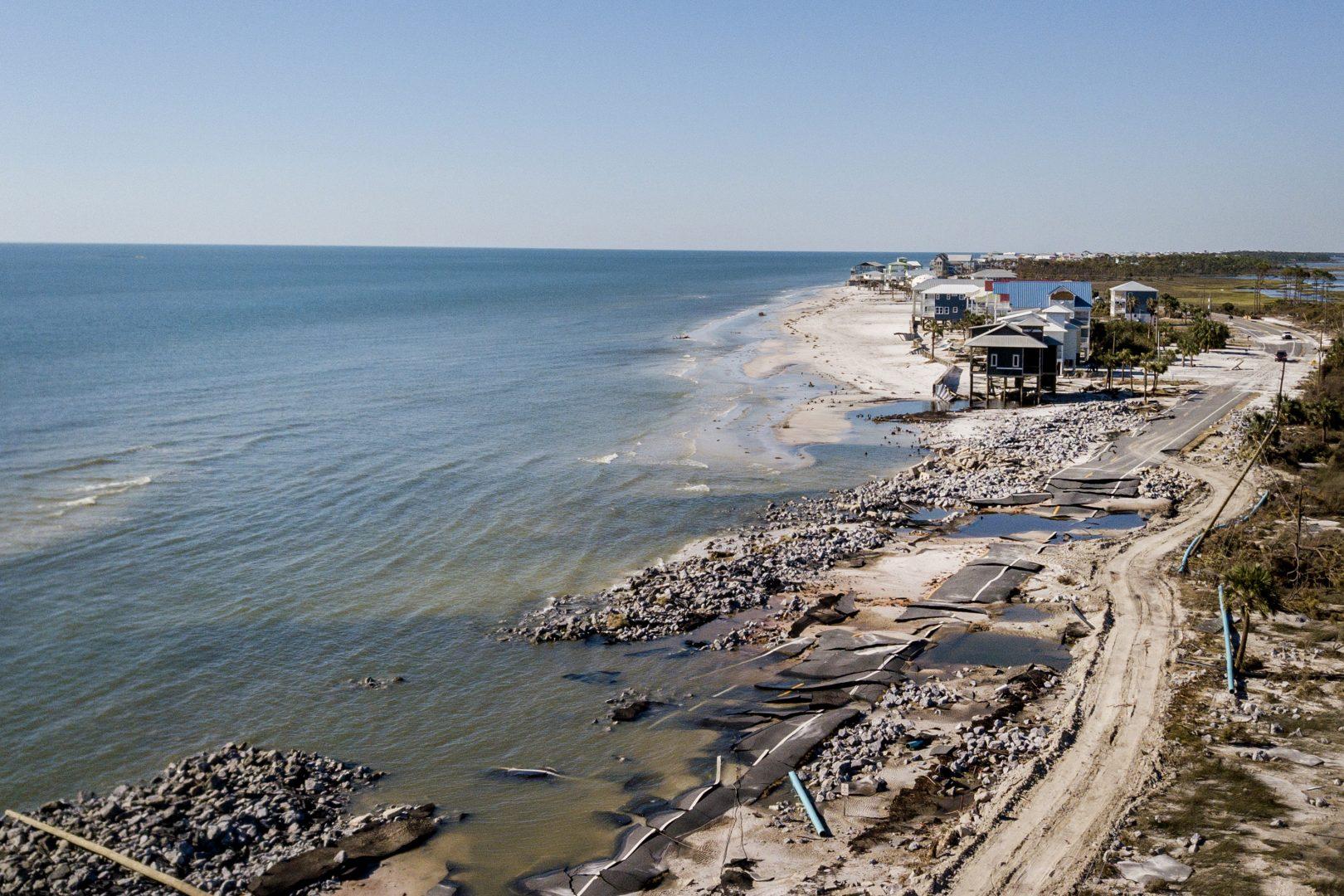PENSACOLA, Fla. — To say we were lucky is an understatement.
Hurricane Michael was the first major storm to hit the Florida panhandle in more than a decade. Pensacola was almost a near miss. Most of the damage the area received was from storm surge. Even then, it was only docks affected.
I moved to Pensacola in 2016 to take a job as a reporter for the ABC affiliate. I heard story after story from colleagues and interview subjects about the impacts of Hurricane Ivan. Ivan was a Category 3 storm when it hit Gulf Shores, Alabama, but it was very destructive to Florida’s western panhandle.
That was in 2004. So when forecasters began predicting that Michael would be a major hurricane heading for the Florida panhandle, people in Pensacola started worrying we were due.
The storm formed quickly. Sunday night, the disturbance turned to a tropical storm, and by Monday, it was a hurricane. Landfall wasn’t anticipated until Wednesday. At that point, we knew it was coming, but we didn’t know just where.
The 24 hours before the storm hit were madness across the Florida panhandle. Gas stations were lined with cars. Stores ran out of water. The interstate was flooded with people heading west.
My fiancé and I decided to stay put. Pensacola was just outside the National Weather Service’s forecast cone for a direct hit, but we were still under a hurricane warning. We prepped the house, stocked up on supplies and continued normal operations. The day before the storm hit, I reported to my job with the city of Pensacola and worked on putting out press releases and arranging interviews for the mayor on final storm preps. City personnel were sent home early to make final storm preparations on their homes. Then, we all waited.
I grew up in Valley Center, California. It is a small farm town on the outskirts of San Diego County. Like many other Californians, the disasters I prepared for growing up are the ones that usually don’t give notice””earthquakes, wildfires. My family evacuated twice when I was in high school because of wildfires. Each time, it was a race to grab our irreplaceable items and documents before heading out the door. Hurricanes are much different. Like a meme on Facebook put it, waiting for a hurricane is like being stalked by a turtle.
When Wednesday morning arrived, minutes went by slowly. But the clock was ticking until Hurricane Michael made landfall.
My fiancé and I got our twin 1-year-old boys ready. I took our two dogs for a walk, and then we headed to his parents’ home to hunker down. The television was on in the background with the latest weather reports, while the adults played poker and the babies and dogs ran around the house.
There were wind gusts, pockets of heavy rain, but nothing crazy. The worst of the storm passed by 2 p.m., so we packed up and went back home. Meanwhile, not even 100 miles east, people were experiencing one of the most catastrophic storms the Florida panhandle has ever seen.
We were very lucky. Our house is in Gulf Breeze, which is essentially an island. Now that we are seeing the pictures of the devastation, my fiancé and I have been constantly asking each other “what if.” What if Hurricane Michael did not track as anticipated and, instead, headed straight to our home? What if we did not evacuate and found ourselves in a situation of heavy flooding due to storm surge with two toddlers and two dogs?
Living in Florida, there is a saying when it comes to hurricanes: It’s not a question of if another hurricane will hit, it’s when.
This time, we were lucky it was not our turn.
Allie Norton served in multimedia positions and then as news editor for The Collegian from January 2010 to May 2012. She graduated from Fresno State with a bachelor’s degree in broadcast journalism in 2012.




